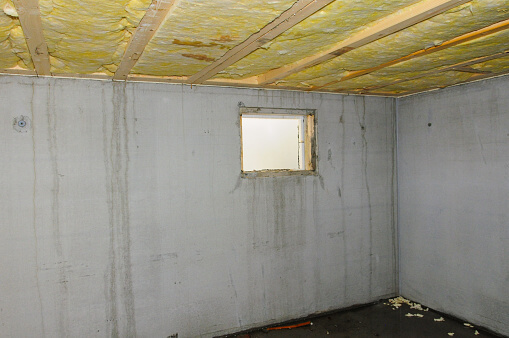
What to Do When Your Basement Is Leaking
Going down into the basement and seeing that tell-tale puddle of water on the floor is the stuff of homeowner nightmares, but it doesn’t have to be a total disaster. If you take the right steps, you’ll have your basement dried out in no time. Here’s a guide to the proper procedures when your basement is leaking.
- Stay safe. The first and most important step to dealing with the water is to make sure you follow proper safety procedures. Most people have a number of electrical devices in their basement, and if you touch something that has live electricity while standing in water, you could be in for a nasty shock. Shut off the fuse to that part of the house if you can, and otherwise wear rubber boots and be extremely careful not to touch any electrical devices or wires.
- Find the cause of the leak. While it might seem like you should call a contractor or plumber right away, the right professional to call depends on what’s causing the leak. If it’s the basement windows that are allowing water in, a plumber wouldn’t be much help. Some common areas to check include your gutters, windows, roof problems that are allowing water to flow down inside the walls to the basement, and plumbing.
- Take steps to stop the water. When you’ve spotted the source of the water, do what you can to minimize further leaking, whether that’s putting a bucket under a steady drip or shoving towels along the bottom of a leaky window.
- Call in help. Unless you’re a professional contractor yourself, you’ll probably need to call someone in to fix the problem when you’ve determined where the water is coming from. A contractor who specializes in basement waterproofing will often be available anytime during the day or week to deal with emergencies.
- Protect your belongings. Once you have a professional on the way, it’s time to move everything you can out of the water or the path where the water is likely to flow. If items have already been soaked by water, soak up as much as you can with a towel and then hang to dry or place in a well-ventilated area.
- Dry up the water. Once the leak is addressed, you may be faced with the problem of standing water hanging out on your basement floor. The best way to remove this water is with a wet vacuum or a pool pump, which can be rented if you don’t already own one. After you get the majority of the water up, you can set up fans to thoroughly dry out the floor.